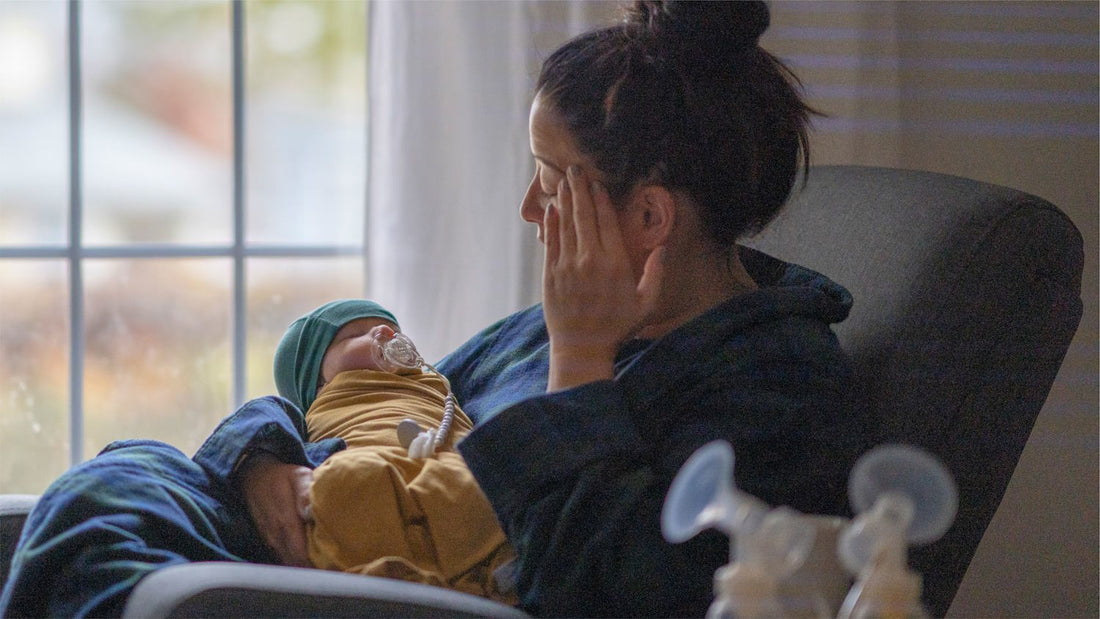
When she’s more than sad
Share
Understanding and responding
Understanding
Perinatal depression and anxiety (PDA) is a collective term that refers to both antenatal depression (before baby is born) and postnatal depression (after baby is born). As many as one in seven women will experience perinatal depression, and their partners can also. PDA is common across all cultural and socio-economic communities and parents often don’t recognise the symptoms or know how to seek help when suffering. Symptoms vary and occur on a spectrum from quite mild (“I’m not feeling right”) to extreme (thoughts of harming themselves or their baby). For a full list of symptoms, go to https://www.panda.org.au/info-support/checklists Also search panda.nz and pandasfoundation.org.uk
You might observe that they don’t appear to have interest in activities that they previously enjoyed, struggle with normal everyday tasks, and withdraw from family and friends. Maybe they are not maintaining personal hygiene, and in conversations, you might glean that they are having sleep problems (too little or too much). They might talk about changes in appetite (over or under-eating), and unusually low energy levels. If these symptoms persist for more than two weeks, it is important for the parent to receive professional support.
Recognising help is needed
Many parents don’t recognise their feelings as postnatal depression but may express that they are feeling sad and have a lack in interest in their baby along with things they used to enjoy. Stigma about metal health issues and society’s expectations that parenthood is full of joy and contentment may also deter parents from seeking help. Most mothers expect to bond instantly with their baby but, attachment may take days, weeks, or months to develop, and in the meantime, mothers may feel guilty, stressed, and disappointed that they feel little or no attachment to baby. When a parent has minimal interaction with her baby, this affects the early stages of development. Early intervention is critical.
What you can do
If a mother expresses concern that she is not bonding with baby, you may be able to help her understand that there is not something lacking in her as a mother and that many factors can contribute. These include their fertility journey, expectations of pregnancy, a difficult birth experience, trauma in their own childhood, having a premature baby, one with illness or special needs, difficulties in their current relationship (including domestic violence, poverty, and isolation), and prior mental health issues. Any of these factors can lead to a feeling of rejection and a lack of desire to care for their baby. Reassure parents that building any relationship takes time, and that journey happens at a different pace for everybody.
It is important to understand that a person’s thoughts and feelings are distorted when depression occurs, and you can’t ‘fix’ them. Instead, you can offer your support and ask them to talk about what they are experiencing to help them realise they are not a bad parent or are unable to love their child.
Validate their feelings, don’t judge, and encourage them to keep sharing. Let the person know you are worried about them, ask how you can help, offering practical and emotional support. If they can’t think of how you could help, make suggestions. Don’t be discouraged if they don’t engage with you, recognising that having no interest in activities and no energy is a symptom of the depression.
Encourage the parent to do something good for themselves; get a massage, a haircut, or simply take time by themselves to walk on the beach or read a book. Perhaps enable them to do this by offering to babysit. Parents with perinatal depression often feel that they don’t deserve to spend money or time on themselves because they feel guilty that they are not being a good enough parent. A gift voucher enables them to treat themselves and remove some of the feelings of guilt.
You could make a significant difference
If you’re worried about a mother, tell her of your concern, offer your prayer and practical support. You might not fully understand what she is experiencing, but it can make a big difference just knowing that she is not alone. Ideally, encourage her to get a professional opinion and care.
Written by Deb Waldron
